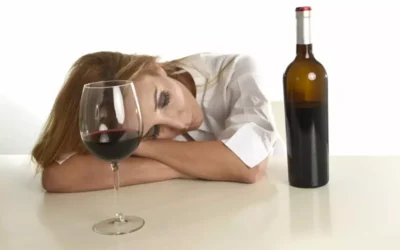Additionally, alcohol affects neurotransmitter levels in the brain—the chemical messengers responsible for how we think, feel, and behave. Over time, these changes can make it harder for you to relax when you aren’t drinking and may lead to persistent worries, intrusive thoughts, and other anxiety symptoms. When you suffer from panic attacks and anxiety, it implies that your natural ability to cope with stress is suffering.
Why Hot Weather Increases Anxiety – Right as Rain by UW Medicine
Why Hot Weather Increases Anxiety.
Posted: Mon, 11 Jul 2022 07:00:00 GMT [source]
When is it time to seek professional help?
For example, having either condition should be a risk marker for developing the other. This is consistent with prospective, observational studies showing that having either an anxiety disorder or AUD at any time increases the relative risk for future development of the other disorder. Further, people with anxiety disorders who did not report any drinking to cope drank less daily than people with no anxiety disorder. And Mr. B had experienced their first panic attacks 1 month after abrupt cessation of alcohol abuse. They had no history of panic attacks during or immediately after the alcohol abuse period.
- He stated that he would not drink again whatever happened but that he needed help for this new intolerable situation.
- A slower metabolism also plays a role, as do medications — prescription, over-the-counter, even herbal remedies — that are common among older people.
- Heart attacks are very rare in people under 40 years and rarer still in teenagers.
- It’s possible to have anxiety after drinking alcohol without having an anxiety disorder.
When To Contact a Healthcare Provider
Alcohol is a diuretic, which means that it causes excessive expulsion of liquid from the body via urination. For every drink you have, you urinate as much as 50% to 100% more water, and this water is taken from other parts of the body. That said, young individuals with congenital heart disease or abnormalities may have a higher risk. This article will explain what heart attack symptoms can occur in teenagers and the causes of sudden cardiac arrest. It will also detail other reasons for chest pains in teenagers and guidelines for optimal heart health.
Anxiety Treatment in Nashville: How The Ranch Can Help
You may not have turned to alcohol because you had anxiety, but everyone deals with day to day stresses, and when drinking these stresses are numbed, but not dealt with. It’s like using a powerful painkiller on an open wound – you won’t feel any pain, but the wound will keep bleeding. Up to one third of people will experience at least one panic attack in their lives, according to clinical psychiatrist Cindy Aaronson.

Can alcohol cause anxiety and panic attacks?
Even if you’re consuming a standard amount of alcohol — a 12-ounce beer or a 5-ounce glass of wine — you’ll experience a mild detox or withdrawal. It takes your body and liver about eight hours to remove what’s essentially a poison. As this is happening, it can affect your central nervous system and cause you to feel jittery or anxious. There are no specific studies that suggest that one type of alcohol can affect anxiety levels more than other types of alcohol.

Does Alcohol Raise Blood Pressure?
When people talk about drinking “alcohol,” they’re almost always referring to the consumption of ethanol. Ethanol is a natural product that is formed from the fermentation of grains, fruits, and other sources of sugar. It’s found in a wide range of alcoholic beverages including beer, wine, and spirits like vodka, whiskey, rum, and gin. Other options to help you reduce alcohol-based anxiety or panic include the following. Although there is no evident source for anxiety, these symptoms are interpreted by the brain as stress and worry due to biofeedback. Thus, small things may easily upset them, and certain words or actions may be misunderstood.
You need to rebuild that coping ability in order to cure your panic attacks. This anxiety may be the result of the chemical withdrawal, but is also often related to people using anxiety as a way to self-medicate for stress. Learning new and healthy coping tools does alcohol cause panic attacks and engaging in a long-term anxiety treatment plan is beneficial. Quitting drinking is always a difficult task, even if you were more of a casual drinker than an alcoholic. This can even affect those that never intentionally used alcohol to cope with stress.
How can I break the cycle of alcohol and panic attacks?
We personalize your treatment based on evidence-informed research, exceptional psychotherapy, nutritional support, and integrative healing methods designed to treat your whole body. While many people manage to stop drinking without any long-term side effects, it is important to note that your experience may differ from those of other people you know. Treating your recovery as an individual journey is important, and finding the right people to guide you to sobriety can help you stay comfortable as you quit drinking. Drinking alcohol can make you feel good for a short while because it raises your levels of a feel-good hormone called serotonin. However, when the effects of alcohol start to wear off, your serotonin levels decrease. Panic attack symptoms are extremely scary, causing many people to experience chest pain, breathlessness, palpitations, vision problems, nausea, diarrhoea, and often a fear that they’re going to die.
- One study found that about a fourth of the individuals who were seeking treatment for a panic disorder had a history of alcohol dependence.
- If you have anxiety and are using alcohol to cope, it’s important that you seek support from your doctor or mental health professional.
- While alcohol can lessen or put a stop to the anxious thoughts that often lead to panic attacks, drinking will only ever be a temporary fix.
This later stage of addiction marks a shift from impulsive use driven by positive reinforcement to compulsive use driven by negative reinforcement. In this stage, compulsive substance use is aimed, in part, at decreasing the negative affect caused or aggravated by the allostatic reset in the brain’s stress and mood systems. However, the analysis also showed virtually no relationship between risk for alcohol dependence and the unique components of those diagnoses.


